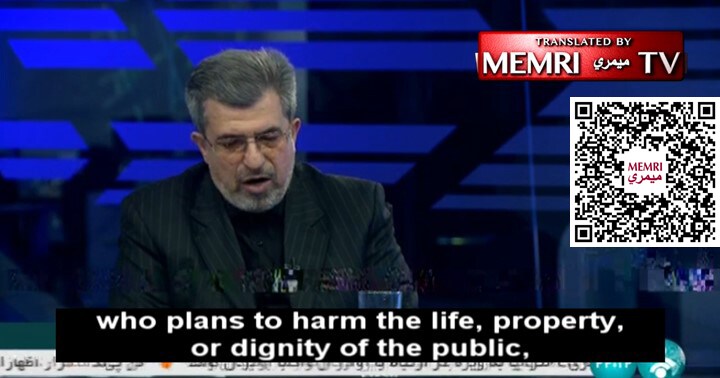
In a December 10, 2022 interview on IRINN TV (Iran), Masoud Setayeshi, the spokesman of Iran's judiciary, spoke about and defended the recent execution of 23-year-old anti-regime protester Mohsen Shakeri. Setayeshi said that the legal proceedings against Shakeri had been fair and in accordance with Iranian law, and that Shakeri had confessed to his crimes and had had legal counsel throughout the proceedings against him. He explained that Shakeri had used cold weapons to injure the "dear brothers" who had been enforcing Iran's security, and that Shakeri's actions were considered an act of "rebellion against God" according to Iranian law. Setayeshi also said that all Iranians must follow the laws and that any person "who plans to harm the life, property, or dignity of the public" is guilty.
Mohsen Shakeri was arrested after he attended a September 25 protest following the death of Jina (Mahsa) Amini, he was accused of injuring a Basij member and blocking a road. He was hanged on December 8, 2022. For more information, see MEMRI TV Clip No. 9980. Iran has come under international condemnation for Shakeri's execution, and human rights organizations have accused the Iranian judiciary of conducting a sham trial, suggesting that Shakeri had been denied access to legal representation during the proceedings.
Masoud Setayeshi: "We must all abide by the law. The law is the same for everybody. We must all be committed to enforcing the law, and to adhering to the law and to the shari'a.
[...]
"The initial procedure in [Mohsen Shakeri's] case relied on the defendant's explicit confession of his actions. He gave a detailed account of how he had gotten there, what had been his goal, and what sums of money he was supposed to receive.
[...]
"In the various phases leading to the conclusion of [this case], he had a lawyer and he exercised his right to defense.
[...]
"[He] used a cold weapon to injure our dear brothers, who were enforcing the security in that place, and he caused fear and alarm among the public, and this led to the unfortunate circumstances. In accordance with the law, his actions were determined to be an act of rebellion against God. After he was convicted and sentenced to death, he asked to appeal the verdict, and his case was referred to the Supreme Court. With time, the accuracy of all the points mentioned in the case was ascertained, the verdict was upheld, announced, and carried out.
[...]
"Any person — man or woman, Muslim or non-Muslim — who plans to harm the life, property, or dignity of the public, or to spread fear and insecurity, is committing an act of rebellion against God.



"With regard to the person we mention here, his case and his actions match exactly the language of the law."















